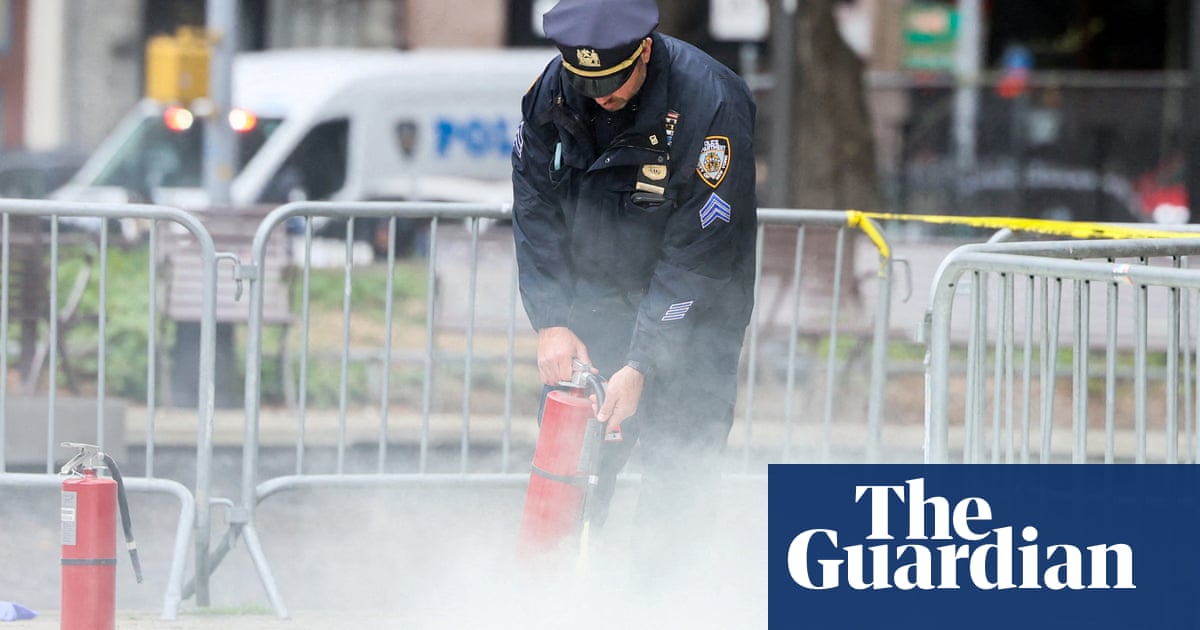
A SYRIAN refugee in Lebanon lit himself on fire outside his house over the increasingly desperate economic situation in the country, one that many have found themselves struggling to cope with.
A disturbing video of the incident that circulated widely on social media showed Bassam Al-Hallak, fully aflame, walking slowly across a field in Lebanon’s Bekaa Valley as another man ran after him carrying jugs of water.
Bassam, a Syrian refugee from the Damascus suburb of Darayya who was living in the town of Taalbaya in Lebanon, died of third-degree burn wounds after being transported to Bekaa Hospital, the state’s National News Agency reported Sunday.
Hallak’s 27-year-old son, Issam Al-Hallak, who was at the hospital Monday waiting to get his father’s body so he could be buried, told Al Arabiya English that his father, a carpenter by trade, had been out of work for two years.
“He had gotten depressed because of the situation – the living situation was very difficult, and he was feeling worn out and depressed because of it,” Issam said. Still, he said Bassam had not spoken of any plans to harm himself and that his father’s death had come as “a great shock.”
Even before Lebanon slid into an economic crisis, spurred by a shortage of dollars in the country, that would witness the Lebanese lira losing around 40 percent of its value against the dollar since September 2019, the situation of the more than 900,000 registered Syrian refugees in the country was becoming increasingly precarious.
A UN assessment conducted in April and May of 2019 found that 73 percent of Syrian refugees in Lebanon were living in poverty, up from 69 percent the year before. The situation has since been exacerbated by the loss of jobs and price inflation due to the economic crisis, and, more recently, due to the lockdown imposed to halt the spread of the coronavirus.
The increasing economic desperation has driven some to return to Syria. Meanwhile, for those who do not see return as an option, the situation in Lebanon has become increasingly grim.
“The situation of refugees – already hardly hit by the economic crisis Lebanon is suffering from – has been further aggravated by the COVID-19 related confinement,” UNHCR spokeswoman Lisa Abou Khaled told Al Arabiya English. “The situation is having a severe impact on refugees’ access to livelihoods, morale, and ability to meet their basic survival needs like rent, food, and medicine, as it is for vulnerable Lebanese communities.”
The elder Hallak and his wife were living in one apartment with their two sons, who are both married and with small children, Issam said. The sons have also been out of work and the family had not received aid from the UN refugee agency apart from assistance with heating fuel, Issam said.
“We would contact the UN, and they would tell us you’re not qualified – you’re not qualified for any aid,” he said.
Abou Khaled said the family had received a total of $375 in emergency winter cash assistance from November through March.
“That said, we of course understand that it is not sufficient, and the economic situation of the family, despite the support, and like many other refugee families, remains very dramatic,” she said. “This is why UNHCR is advocating for an expanded safety net for refugees during this difficult period.”
Issam said the family had fallen three months behind on the rent – amounting to 400,000 Lebanese lira (or about $200) a month and was having difficulty getting even basic necessities.
“Because of that, my father had a lot of heartache, and that’s why he burned himself,” he said.
The NNA report said that the governor of the Bekaa, along with other public entities, were working with UNHCR to follow up on the case and secure assistance for the family.
As of Monday, Issam said he had not yet heard from the UN, but that someone from the governorate had called him and promised to help with the hospital bill.
Abou Khaled said UNHCR was “deeply distraught” by Bassam’s death and promised to “accompany (his family) as much as possible during this difficult time” and to get aid to others in need, as well as to offer mental health support.
“We are working closely with our humanitarian partners to expand financial assistance to the most affected refugee and Lebanese communities during this exceptionally difficult period and are coordinating closely with our donors to secure the urgently needed funds,” she said. -- Al Arabiya English








